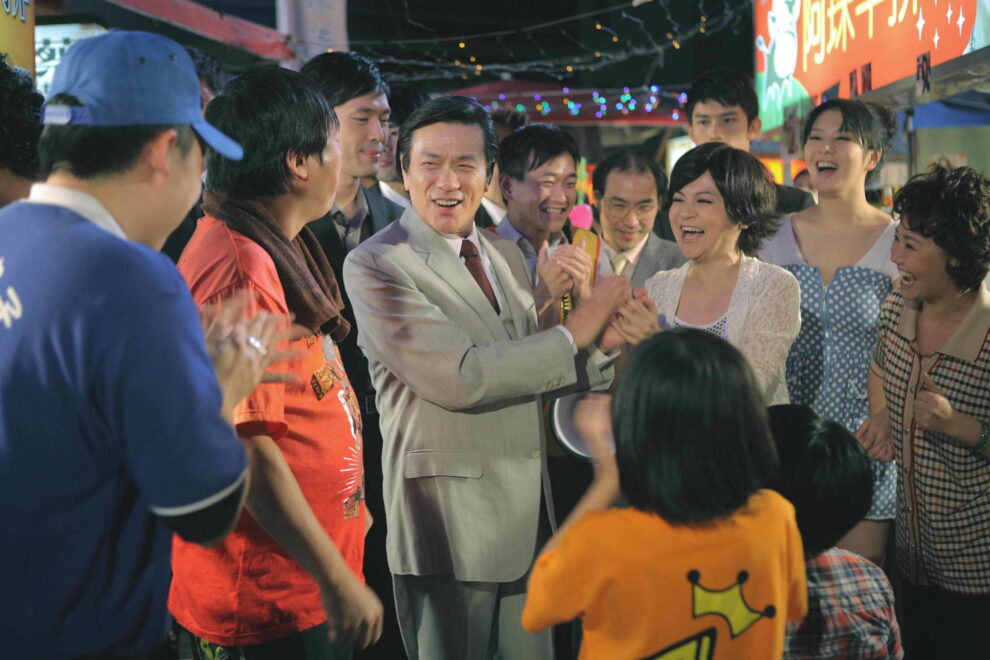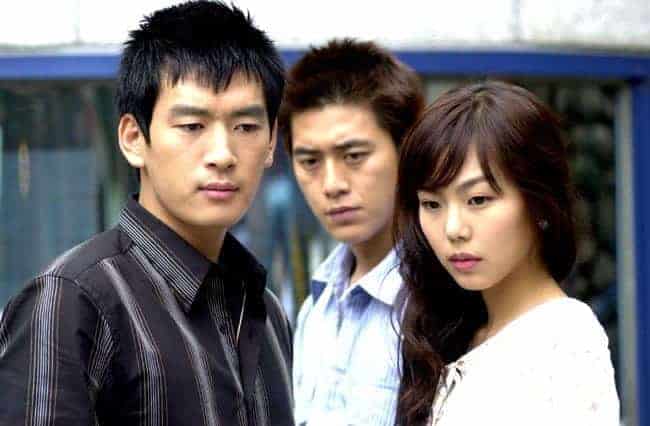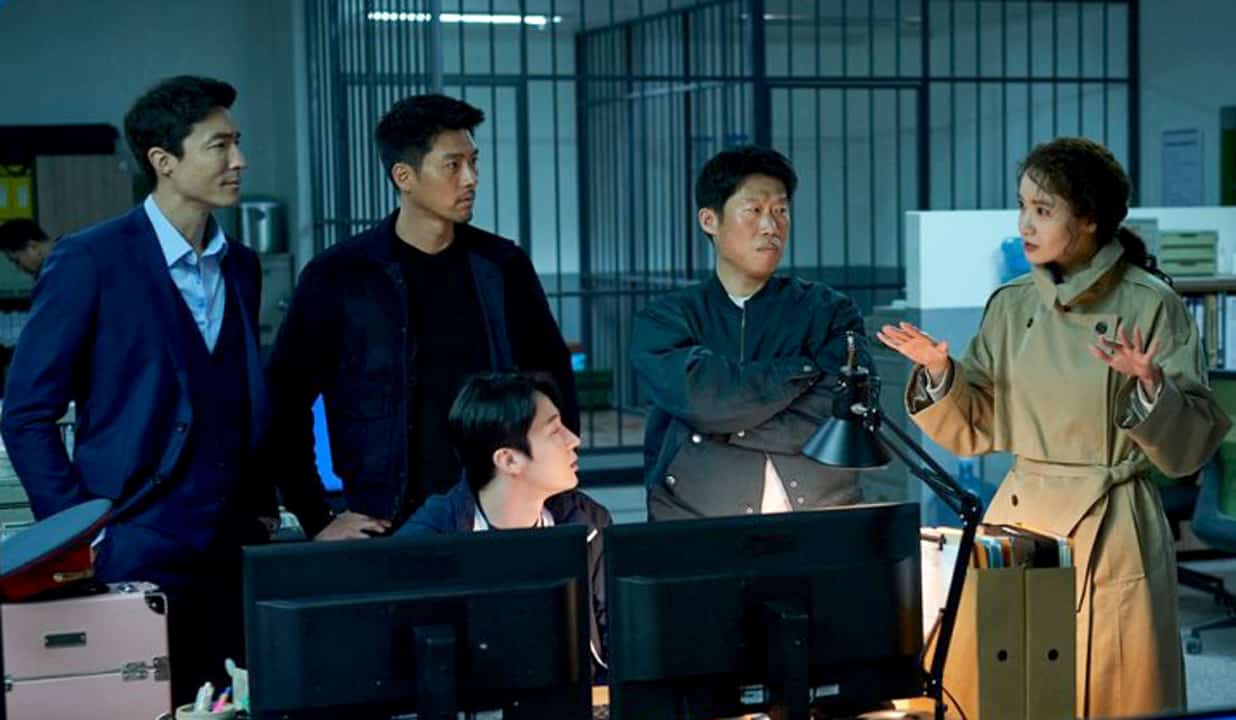Feature debut of Yeh Tien-lun, “Night Market Hero” is a landmark for Taiwanese cinema. Apart from still being on the list of the highest grossing local films, more than 12 years after its release, it was also the first Taiwanese film to be shown in mainland China since the Economic Cooperation Framework Agreement was signed on June 29, 2010.
In the rather frantically moving, loud and bright 888 Market, the elections for the Union Leader are underway, with young and popular Ah-hua narrowly winning, despite the dirty tricks of rival Tsai Hung-kuei. Ah-hua is courageous, smart and tries to help everybody in need of help. A rivalry, however, between Madame Steak and the owner of Enjoy Large Fried Chicken, the most successful stall in the market, is full on, and neither of the two ladies are willing to let go. In the meantime, Ah-hua stumbles upon Lin Yin-nan, a female reporter, with both their lives immediately falling into chaos. The former does everything in his power to win her over, while the latter is severely criticized by her boss, her boyfriend breaks up with her, and she is sentenced to community service at 888 Night Market as a punishment for destroying an electric circuit.
Although initially being quite negative towards Ah-hua and the street vendors, as she gets to know them better, she realizes that their lives are at least as sad as theirs, with the stories of Madame Steak, cosmetician A-Shui and her sultry daughter Mei-hsiang, 18 Wang, a local sausage seller, and Ah-hua himself, all including a rather sad backgrounds. Right when Ah-hua starts warming to them, it is revealed that a construction company has purchased the land where 888 Night Market is located, bribed legislator Chang Chin-liang, and employed gangsters in order to close the market and proceed with their development plans. Finally, the stall owners get together and try to fight.
Yeh Tien-lun directs a movie that uses one of the most appealing attractions of Taiwan, the night markets, which traditionally operate from sundown to sunset, in order to present a micrography of Taiwanese society. At the same time, he implements an episodic narrative that revolves around the plethora of intriguing characters that appear in the story, in an approach that obviously focuses on entertainment. In that fashion, the dynamics of the characters' relations, as much as their background, are quite appealing to watch, with 888 market serving as a rather intriguing setting.
The romance that blooms between Ah-hua and Yin-nan, the competitiveness of the two main meat vendors, and the appearance of the politician who does have some connection to the protagonists are all entertaining to watch, in a style that frequently reminds of a stage play. And while the majority of the movie follows comedic paths, as soon as the past of the characters is revealed, and the contractors become part of the story, the turn towards drama is at least as significant, with the transition actually working quite well. It is also this part that makes the most pointed comments, with the connection between the capital, the mafia and the politicians presented in rather eloquent fashion.
At the same time, however, it is somewhere here where the movie begins to falter, as the number of episodes and characters do become overwhelming after a point, and the stories a tad melodramatic. In that fashion, following everything that is happening does become somewhat difficult after a point, as does empathizing with all the poor devils, with the frantic pacing not helping in that regard.
On the other hand, the acting definitely saves the situation, although mostly through chemistry than individual performances. Lan Cheng-lung as A-hua is the one who stands out though, with his charisma and overall appealing personality providing an anchor for all the episodes presented here. Ko Chia-yen as Lin Yi-nan presents her transformation nicely, while Esther Liu as Lin Mei-hsiang steals the show a number of times, although mostly through her appearance. The ones who steal the show, though, are definitely the two fighting vendors. Hsueh-Feng Lu as Fried Chicken and Lotus Wang as Madame Steak are always captivating to watch, both individually and in their fights, with their theatricality actually working quite well here.
Chin Ting-chang's cinematography is quite good, particularly in the way he implements the relatively narrow space of the market in order to look as something much larger (a whole world one could say), while the atmosphere of the night market is definitely captured in the visuals. Hsiao Ju-kuan's editing results in a pace that is frequently frantic, only briefly slowing down, which is both entertaining and manages to hide some of the issues with the narrative. In general, the audiovisual style, the editing, and the style of the comedy here, including the plethora of characters, definitely points towards HK comedies of the 90s, although in less slapstick fashion.
As the vibrant lights of the 888 Night Market fade, “Night Market Hero” stands as a shining testament to Taiwanese cinema's resilience. Yeh Tien-lun's directorial debut intricately blends the chaos of market life with a mosaic of characters, revealing the poignant tales behind the stalls. Though the narrative occasionally stumbles under its own weight, Lan Cheng-lung's charismatic portrayal of Ah-hua and the dynamic interplay between vendors provide a compelling anchor. Amidst the melodrama, the film's commentary on the nexus of power, politics, and the ordinary resonates, making it a captivating journey into the heart of Taiwanese society.
















